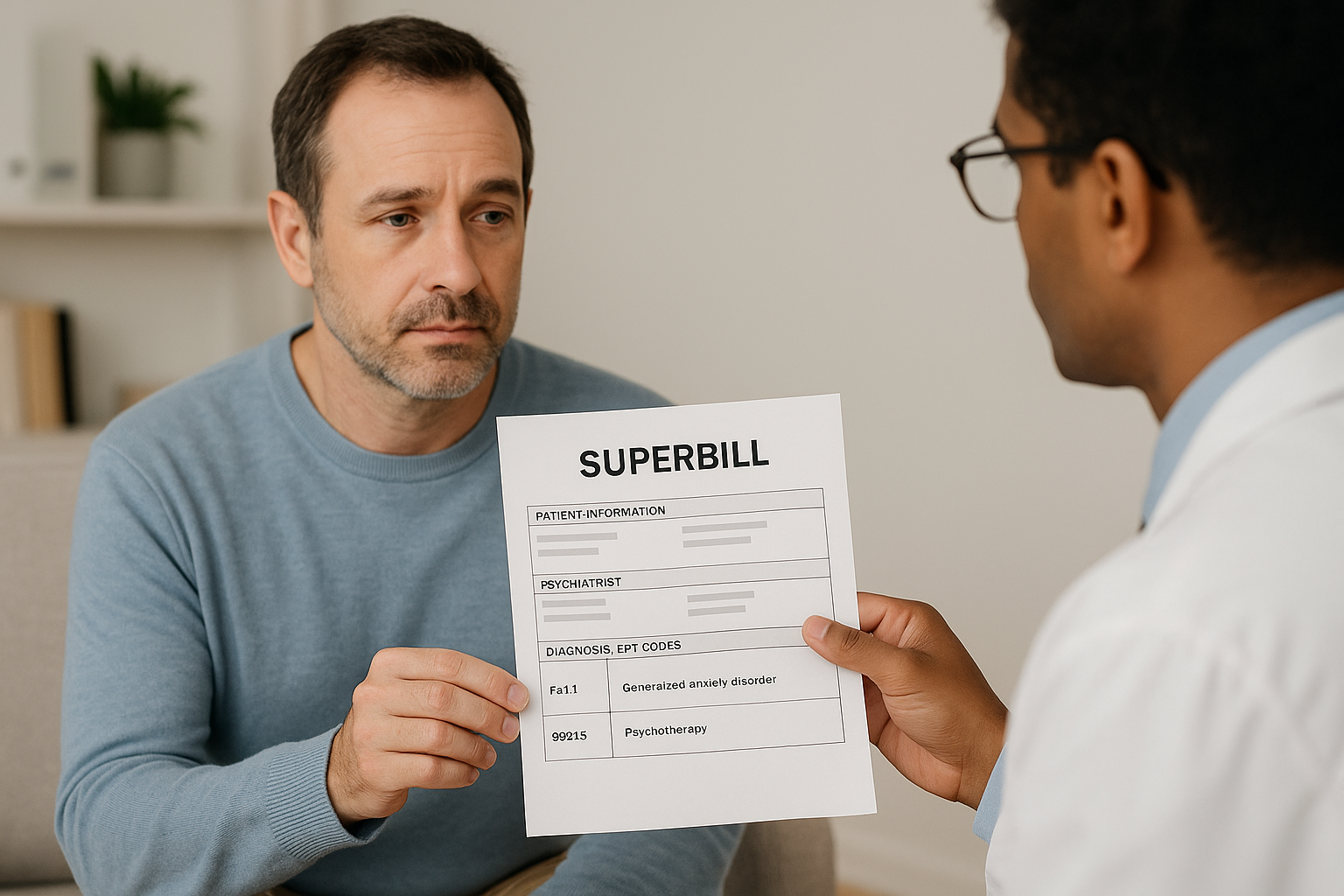Feeling Sad — Should I See a Psychiatrist or a Psychologist?
You don’t have to make the “perfect” first choice; many people start with whoever feels most accessible!

In this article we wanted to shed light on how to choose between a psychiatrist or psychologist, understand how each can support your mental health, and discover how they often work best together.
If you're feeling persistently sad, low-energy, or just off, you're not alone. One of the most common questions I hear from patients in this state is, "Should I see a psychiatrist or a psychologist?" And while the answer isn’t always black and white, understanding the difference can make your next step feel more informed and less overwhelming.
Both psychiatrists and psychologists are trained mental health professionals, but their roles, training, and treatment tools differ in key ways. More importantly, they often work together to help support your healing.
- Psychiatrists are medical doctors (MD or DO) who can prescribe medication, diagnose mental health conditions, and understand symptoms through both a biological and psychological lens.
- Psychologists, on the other hand, typically hold a PhD or PsyD and focus on therapy, psychological testing, and behavioral support. They can guide you through emotional pain, patterns, and traumas, but they don’t prescribe medication.
What distinguishes the both?
If your sadness is impacting sleep, appetite, work, or relationships, or if it's paired with physical symptoms like fatigue or restlessness, starting with a psychiatrist can be helpful. Psychiatrists can assess whether something medical is contributing to your mood—like a thyroid issue, vitamin deficiency, or sleep disorder—while also exploring your mental health. They may suggest therapy, medication, or both depending on your unique needs.
That said, this isn’t an either/or decision. One of the most common misconceptions I hear is that you have to pick: medication or therapy. But in reality, the best care often combines both. Psychiatry can help stabilize overwhelming symptoms, while psychology gives you the tools to understand and transform your inner world. The two work beautifully together.
If your sadness feels more rooted in emotional patterns, grief, unresolved trauma, or long-standing relationship difficulties, a psychologist may be your best starting point. Psychologists are experts in helping people make sense of their emotional world and develop tools to cope and grow. Whether it's through cognitive behavioral therapy (CBT), psychodynamic therapy, EMDR, or mindfulness-based approaches, they work to help you feel more in control of your experience. They can also offer in-depth assessments — such as for ADHD, learning disorders, or personality dynamics — which can clarify the factors contributing to your distress. You can use the American Psychology Association (APA) psychology locator to find a therapist near your area.
Logistics of Care
There are also practical differences. Psychiatric visits are often monthly and may focus on stabilization, medication management, and periodic check-ins on progress. Psychologists typically meet with patients weekly, allowing for more consistent emotional processing and momentum in therapy. These differences can influence your choice based on the type and frequency of support you feel you need right now.
Still unsure? That’s okay.
You don’t have to get it perfectly right on your first try. Many people begin with whichever provider feels most accessible and adjust as needed. A good psychiatrist will let you know when therapy might be helpful, and a psychologist will suggest a psychiatric consult if medication or medical evaluation is appropriate. Your job isn’t to know all the answers—it’s to start the conversation.
Above all, feeling sad doesn’t mean you’re broken. It means your mind and body are asking for attention. Whether you begin with a psychiatrist or a psychologist, the most important thing is that you don’t ignore the signal. Healing is possible. Support is available.
When it's more than Sadness
And if your sadness ever turns into thoughts of self-harm or suicide, please don’t wait. Call 911 or go to your nearest emergency department. You can also call 988—the Suicide and Crisis Lifeline—to speak with a trained counselor who can support you and connect you with resources in your community.
Above all, feeling sad doesn’t mean you’re broken. It means your mind and body are asking for attention. Whether you begin with a psychiatrist or a psychologist, the most important thing is that you don’t ignore the signal. Healing is possible. Support is available. And you don’t have to figure it out alone.
More Articles

How Does Reimbursement Actually Work for Therapy / Psychiatry with Blue Cross Blue Shield in New Jersey?


